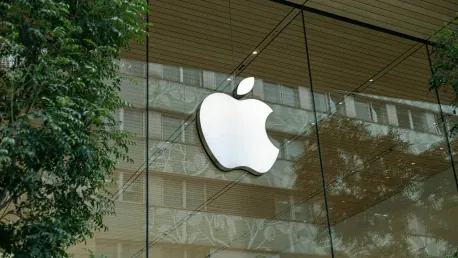In a significant development, Apple has begun testing Amazon’s custom AI chips to pretrain its proprietary AI models, as disclosed by Benoit Dupin, Apple’s senior director of machine learning and AI, during Amazon’s AWS re:Invent conference. This announcement highlighted Apple’s long-standing collaboration with Amazon Web Services (AWS), which powers fundamental Apple services such as iCloud, Apple Maps, and Siri. By leveraging Amazon’s custom AI chips, Apple aims to achieve a 40% efficiency gain in its pretraining processes, with potential enhancements of up to 50%.
Dupin’s revelation was complemented by AWS CEO Matt Garman’s disclosure that Apple sought Amazon’s expertise in constructing its generative AI infrastructure. The focus of Apple’s interest is Amazon’s recently introduced Trainium2 chips, renowned for their remarkable computational performance and efficiency. The decision to test these new chips aligns with a broader industry trend of exploring specialized hardware solutions to enhance AI training capabilities. While this collaboration offers promising prospects, Apple remains dedicated to its own silicon-powered infrastructure, particularly highlighting the use of the M2 Ultra and the anticipated M4-powered servers.
Maintaining a Balanced Approach
Despite the promising capabilities of Amazon’s AI chips, Apple’s decision to continue using its in-house silicon infrastructure for operational AI processes demonstrates a balanced approach. By integrating external solutions for pretraining, Apple can potentially streamline and optimize its AI models without compromising its commitment to its proprietary technology. This strategy is exemplified by the ongoing utilization of Apple silicon, which powers not only its consumer products but also its intelligence features across devices.
This dual approach underscores a consensus viewpoint within the tech industry that leveraging specialized infrastructure can significantly boost AI training efficiency. For Apple, testing Amazon’s custom solutions while maintaining its own infrastructure offers a pathway to enhance performance and innovation. This approach reflects a strategic balancing act—embracing external capabilities to push boundaries while preserving the unique advantages of in-house developments.
Conclusively, this development highlights Apple’s adaptive strategy in the rapidly evolving AI landscape. By exploring collaborations with industry leaders like Amazon, Apple can access cutting-edge technologies that might enhance its AI capabilities even further. The decision to test Amazon’s AI chips, alongside continued reliance on its silicon infrastructure, represents a forward-thinking, multifaceted strategy poised to drive advancements in AI training and operational efficiencies.









